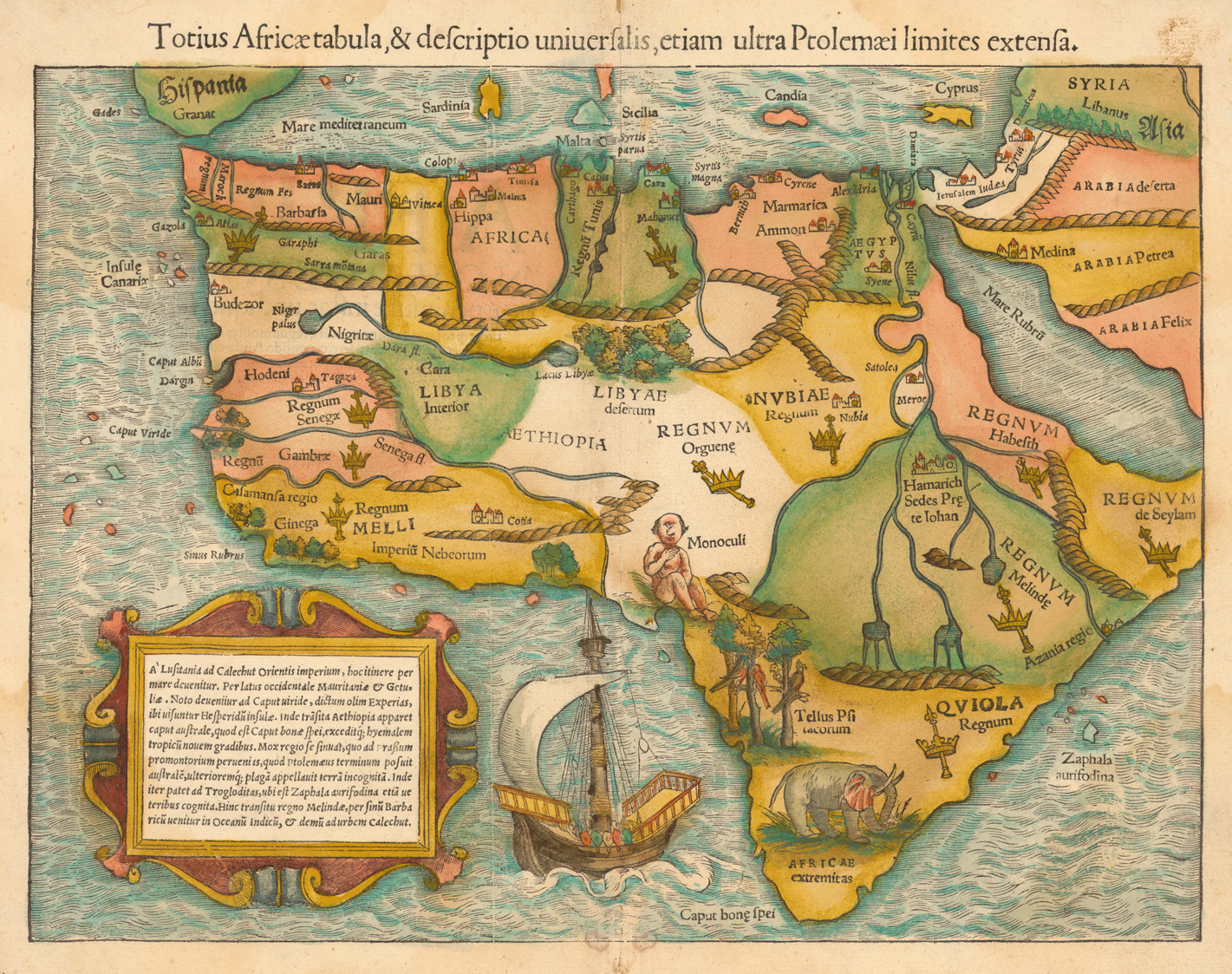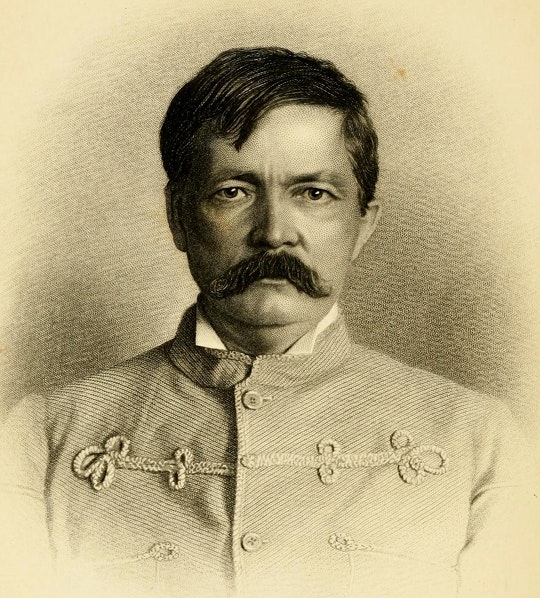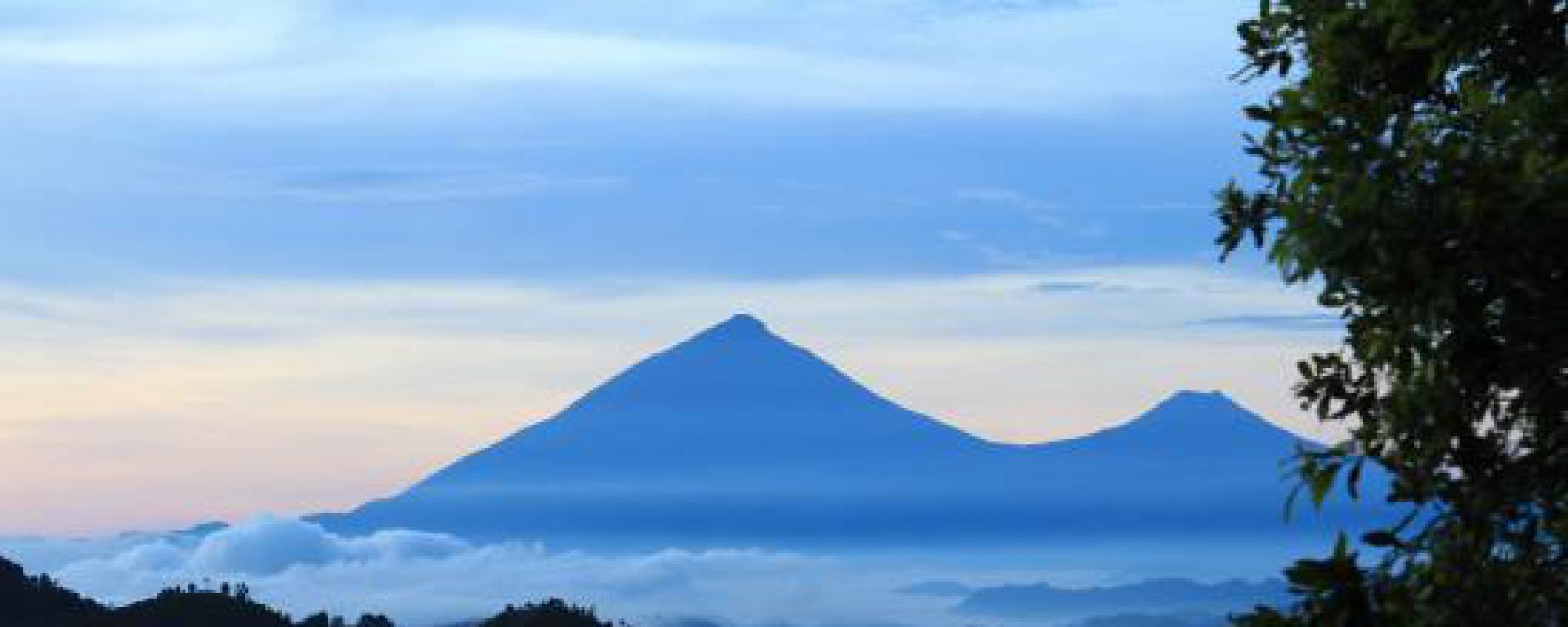
By the time the explorer Henry Morton Stanley confirmed it source in 1875, the search for source of the Nile had occupied Western minds for thousands of years. That the search for the Nile’s source should have been so important is perhaps inevitable. The Nile was the life blood of the ancient Egyptian Civilisation, as it was for the Greeks, who took over Egypt in about 300 BC. The expansion of the Roman Empire would have been much more difficult without Egyptian grain (which was in turn made possible by the waters and silt deposits of the Nile).
Speke

When John Hanning Speke announced that he had ‘discovered’ the Nile’s source in 1862, there was naturally a lot of scepticism. In part of course no one wanted to believe that such an ancient puzzle had been solved by a mere captain from the India army! The snobbery in their dismissal of his claims is clear in the doubts expressed by members of Royal Geographical Society. It didn’t help matters that in his own memoirs Speke suggests that he ‘went native’ during his time in Buganda: He was ‘allocated’ two local women as wives by Muganziriwaza, mother to Kabaka Muteesa I. A comparison of Speke’s journal with those of others who failed in their quest for the source suggests to Muhavura that one of the key reasons Speke succeeded is that he understood that his hosts were not fools or sub-human animals, treated them as such, and they reciprocated by providing him the information that led to his success.
Stanley

H M Stanley, having previously tracked down a lost and sickly David Livingstone, was perhaps the natural choice as the explorer to send out to confirm Speke’s claims. At issue was the question of whether Lake Victoria, the source identified by Speke, was one lake or many. It was naturally difficult for western minds to believe that such a vast, unreported, inland lake existed in the heart of Africa. Stanley has in time come to have a bit of bad reputation, in no small part due to his hand with the rape of the Congo by King Leopold. Muhavura has read Stanley’s account of his journey the across Central Africa, from Zanzibar to the mouth of The Congo River. Stanley no doubt was not a nice chap. You might even call him racist by today’s standards. And yet his account of the quest to confirm Speke’s claims is a very interesting and honest one, and even manages to somewhat temper Muhavura’s view of the man.
In Volume I of his journal Through the Dark Continent, Stanley, like Speke before him and John Roscoe after him, offers important glimpses into life in Uganda before the disruptive period in the 1890s when things fell apart. Much of the text may prove tedious to readers. To Muhavura it is in his account of Buganda, its flora and fauna, its political and social organisation, that the journal truly shines. Stanley certainly could be said to have fallen in love with Buganda/Uganda. His description of the land and its organisation brims with admiration at each turn.
“March 26 – In the morning the world appeared re-born, for the sky was a bluish crystal, the shores looked as if fresh painted in green, the lake shone like burnished steel, the atmosphere seemed created for health.”
From the time he lands on Buganda soil in what is now the Kampala suburb of Busabala, Stanley is struck by the sophistication and orderliness of life.
Mtesa, Emperor
“It may easily be gathered from these entries that a feeling of admiration for Mtesa must have begun very early, and that either Mtesa is a very admirable man, or that I am a very impressionable traveller, or that Mtesa is so perfect in the art of duplicity and acted so clever a part , that I became his dupe.
The chief reason for admiration lay, probably, in the surprise with which I viewed the man whom Speke had beheld as a boy — vain, foolish, peevish, headstrong youth and a murderous despot — sedate and composed in manner…”

Before continuing on his ultimately successful quest, Stanley spends a lot of time with Mutesa I, and has much to write about the way Buganda was organised. He also participates in Mutesa’s conquest of the Buvuma Islands, ultimately providing the clever ruse by which the Bavuma are induced to surrender. The vignettes that he offers are too numerous to list here. And Muhavura feels that summaries are no substitute for the original.
Before they came
What is clear in reading the account is how much knowledge of the past has been lost, and how far in some respects we as a society have regressed. Even in the concrete stuff, such as our mastery of Lake Victoria, it appears our forebears were well ahead of us: Stanley reports that in his attack on Buvuma Mutesa mustered a navy of over 200 boats, some of which were over 75 foot long! In 2020 we would be hard-pressed to compete with those numbers! (To put the size of those boats in perspective, take a typical 50-by-100 plot of land, and those boats were longer than it is wide!)
What is also clear is that there has been what seems to be a conspiracy to ensure that we are unaware of our written history. The typical well-schooled Ugandan is from early in life fed a history education diet seemingly designed to create a mindset that before the coming of the White Man this land and its people were a blank space. All darkness. And that therefore all progress, intellectual or physical, requires the tools and methods of the White Man. Ask the average secondary school pupil who H M Stanley or John Speke was, and you will likely get a short answer suitable for passing a vacuous exam question. They will certainly be completely unaware of the portrait these men painted of the advanced society they encountered here. This is an unnecessary tragedy. There is little doubt that the White Man brought some good. However to entirely throw away that which we were strikes Muhavura as wrong. And that’s putting it mildly. With the help of the Internet we can all work to remedy this.

One thought on “H M Stanley & The Quest to Confirm The Source of The Nile”